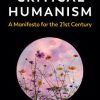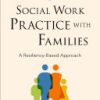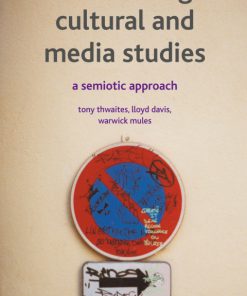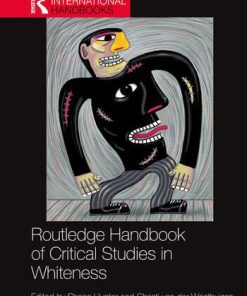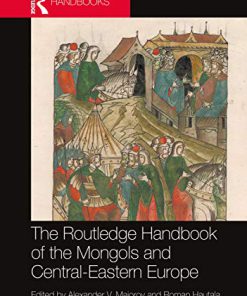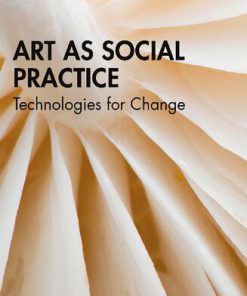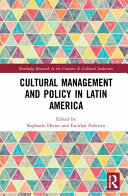Activating Cultural and Social Change The Pedagogies of Human Rights 1st Edition by Baden Offord, Caroline Fleay, Lisa Hartley, Yirga Gelaw Woldeyes, Dean Chan ISBN 9780367487270 0367487276
$50.00 Original price was: $50.00.$25.00Current price is: $25.00.
Activating Cultural and Social Change The Pedagogies of Human Rights 1st Edition by Baden Offord, Caroline Fleay, Lisa Hartley, Yirga Gelaw Woldeyes, Dean Chan – Ebook PDF Instant Download/Delivery: 9780367487270 ,0367487276
Full download Activating Cultural and Social Change The Pedagogies of Human Rights 1st Edition after payment
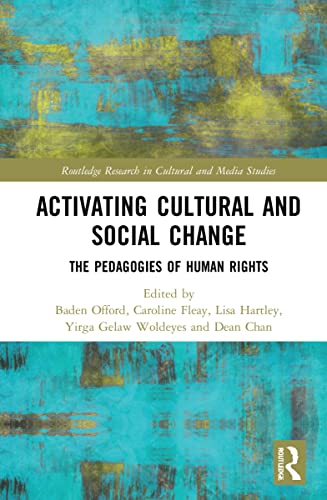
Product details:
ISBN 10: 0367487276
ISBN 13: 9780367487270
Author: Baden Offord, Caroline Fleay, Lisa Hartley, Yirga Gelaw Woldeyes, Dean Chan
Activating Cultural and Social Change The Pedagogies of Human Rights 1st Edition Table of contents:
1 The pedagogies of human rights: in truthfulness, what should be done?
Digging into the pedagogy of human rights
Structure and organisation
Conclusion
References
PART I: Contexts
2 Context-centred decolonial pedagogy for human rights education in Africa
Introduction: context-centred pedagogy of human rights
Two Africas, two contexts
The invention of Africa as nothingness
Thingification
The thingification of nature
The colonising structure
Conquest
Construction
Pedagogical lessons
Conclusion
Notes
References
3 Human rights pedagogy in context: critical Indigenous studies
Introduction
Background: Indigenous Studies in the Australian academy
Contemporary contexts: the prevalence of liberal approaches
Critical Indigenous Studies
Anti-colonialism
Critical tools
Critical race theory
The critical analysis of whiteness
Intersectionality
The critical anti-colonial framework
Difficult knowledge and uncomfortable pedagogies
Conclusion
References
4 “Here we are equal”: refugee-run schools as a vehicle for human rights pedagogy
Introduction
Method
The Indonesian context
Students
Teachers
Parents
Conclusion
Notes
References
5 The pedagogics of disability–Indigenous intersectionalities in the age of austerity
Introduction
Decolonising pedagogies and disabling practices: framing our praxis
Pedagogics of hope, resistance and solidarity: researching austerity with disability–Indigenous communities
Understanding rights intersectionally: the materiality of Indigenous and disability rights under settler-colonial governance
The age of austerity: contextualising research pedagogies of human rights
Refusing disability in the age of austerity: the pedagogics of race in settler-colonial Australia
Disability denied: contesting Indigenous embodied experiences of disability and care
Denying disability rights, entrenching Indigenous poverty and inequality
Conclusion: Intersectional rights based pedagogies in settler-colonialism
References
6 Pedagogies of resistance for challenging Islamophobia
Introduction
The faces of Islamophobia
Situating Islamophobia
The universal hold of Islamophobia in the West
Contributors to Islamophobia and the yielding of power
Law, policy and professions
Media and social media
Right-wing influencers
Remoulding human rights education
Overcoming barriers to countering Islamophobia
Unfinished business
Note
References
PART II: Perspectives
7 A pedagogy of dissent for human rights education
Introduction: situating this pedagogy
The formal development of human rights education within the UN
The UN approach to HRE: an uncritical framework
Dissent, dialogue and transformation
Dissent
Dialogue
Conclusion: from dissent and dialogue to transformation
References
8 Collective work with people seeking asylum: pedagogical encounters and the role of the human rights academic
Policy overview
A collective response to the exclusion of people seeking asylum from higher education
The role of the activist-academic
Conclusion
Note
References
9 Other echoes in the garden: human rights, peripheral vision and ghosts
Introduction
Hungry ghosts, human rights and education
Visualising human rights: representing ghosts
Intersections: The Bamiyan Buddhas
The backyard
Conclusion
Note
References
10 Centring and decentring the “human” in human rights pedagogy
The humanities
Decentring the human
Post-human rights
Human rights pedagogy
References
11 Human Rights Film Festivals: more than witnessing
Introduction
Human Rights Film Festivals
Some historical context for the Human Rights Film Festival
Distant suffering
“Beyond the film” and social change
Spectator and the life-world
Third Cinema: active spectatorship
Instrumentalism of film?
By way of ending
Note
Filmography
References
PART III: Practices
12 Cultivating human connection in the everyday: a practical model for solidarity
Introduction
Nurturing true solidarity in community: the Befriend social network
Disrupting traditional supports: critical pedagogy
Case Study: Identitywa
Key change mechanisms
Conclusion
Acknowledgements
References
13 Educating the heart: a journey into teaching First Nations human rights in Australia
Indigenous ways of knowing in Indigenous human rights education
How is Indigenous human rights education done?
Being a First Nations facilitator/teacher
What happens when people join such Indigenous human rights classes?
Conclusion
Notes
References
14 Student approaches to learning in human rights education: supporting deep and transformative learning in postgraduate peace and conflict studies
Introduction: human rights in higher education – towards cultures of peace
Pedagogy and practice in Peace and Conflict Studies
Redeveloping Religion, War and Peace
Student approaches to learning: finding the “inner logic” of HRE in PACS
Conceptions of learning and approaches to study
Factors affecting adoption of deep or surface approaches to learning
Revisiting student approaches to learning in Religion, War and Peace
Conclusion
Acknowledgements
Notes
References
15 Online refugee advocacy campaigns in Australia: approaches to care and an affective human rights pedagogy
Introduction: refugees and ethics of care
Asylum seeker policy in Australia: a political lockdown?
Framing an ethics of care: an overview of advocacy strategies
Textual analysis of three Manus Island and Nauru–related campaigns
RISE: background and Shut Down Manus campaign
Refugee Action Coalition Sydney: background and Manus and Nauru campaign
GetUp!: background and pro-refugee campaigns
Conclusion: an effective affective pedagogy
Notes
References
16 Mainstreaming accessible digital technologies in higher education: a human rights approach to disability inclusion
Introduction
Locating disability in society
A human rights approach
Methodology
An overview of the survey population
Students’ use of assistive ICT: quantitative findings
Students’ use of assistive ICT: qualitative analysis
A human rights approach to disability inclusion
Conclusion
Acknowledgements
References
17 Roundtable: connection, community and context
References
Index
People also search for Activating Cultural and Social Change The Pedagogies of Human Rights 1st Edition:
activating change deaf
the acts of a culture change are
a cultural change
btw cultural changes answer key
cultural activation
Tags: Baden Offord, Caroline Fleay, Lisa Hartley, Yirga Gelaw Woldeyes, Dean Chan, Activating Cultural, Social Change
You may also like…
Politics & Philosophy - Cultural
Introducing Cultural and Media Studies 1st Edition Tony Thwaites
Education Studies & Teaching - Educational Theory
Medicine - Pharmacology
Politics & Philosophy - Social Sciences
Routledge Handbook of Critical Studies in Whiteness 1st Edition Taylor & Francis Group
Uncategorized
Creativity and Innovation Theory Research and Practice 2nd Edition Taylor & Francis Group
Arts - Contemporary Art

